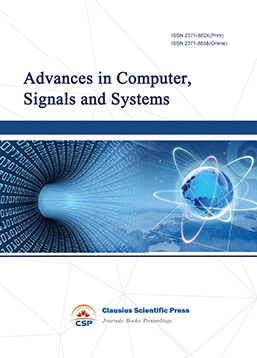Optimization of Charging Strategies for New Energy Vehicles Based on Reinforcement Learning Algorithms
DOI: 10.23977/jaip.2024.070112 | Downloads: 33 | Views: 1409
Author(s)
Lei Yao 1
Affiliation(s)
1 Zeekr Intelligent Technology Holding Limited, Hangzhou City, China
Corresponding Author
Lei YaoABSTRACT
With the popularization of new energy vehicles (NEVs) and the increasing severity of traffic congestion, charging difficulties have become a concern for people. Effective management and optimization of the NEV charging process have become increasingly important. This not only concerns the safety and stable operation of the power grid, but also directly affects the efficiency of road traffic, the utilization of renewable energy, and the charging experience and cost for users. The charging behavior of NEVs is a complex process that involves multiple considerations, such as grid load balancing, availability and efficiency of charging stations, user charging needs, and electricity prices. To address these issues, this paper proposes a NEV charging optimization strategy based on reinforcement learning (RL) algorithm, which can handle high-dimensional and complex environments and effectively deal with randomness and uncertainty factors. This strategy can not only reduce the load fluctuation of the power grid, improve the safety and stability of the power grid, but also reduce the charging time and cost of users, improve charging efficiency and user satisfaction. Meanwhile, by combining renewable energy, this strategy can also promote sustainable development, reduce reliance on traditional energy, and improve the utilization rate of renewable energy.
KEYWORDS
Reinforcement learning algorithms, New energy vehicles, Optimization of charging strategyCITE THIS PAPER
Lei Yao, Optimization of Charging Strategies for New Energy Vehicles Based on Reinforcement Learning Algorithms. Journal of Artificial Intelligence Practice (2024) Vol. 7: 71-76. DOI: http://dx.doi.org/10.23977/jaip.2024.070112.
REFERENCES
[1] Zhang Wenxin, Li Ran, Zang Xiangdi, et al. Real-time scheduling strategy optimization of electric vehicle power station based on reinforcement learning [J]. Electric Power Automation Equipment, 2022(010):042.
[2] Shen Guohui, Zhao Rongsheng, Dong Xiao, et al. Navigation strategy for electric vehicle charging based on multi-information interaction and deep reinforcement learning [J]. Southern Power Grid Technology, 2022(001):016.
[3] Yao Tianhao, Ye Peng, Zhao Siwen. Research on Orderly Charging Strategy of Electric Vehicles Based on Bilevel Optimization Algorithm [J]. Journal of Shenyang Institute of Engineering: Natural Science Edition, 2019, 15(2):8.
[4] Zhang Yanyu, Rao Xinpeng, Zhou Shukui, et al. Research progress of electric vehicle charging scheduling algorithm based on deep reinforcement learning [J]. Power System Protection and Control, 2022(016):050.
[5] Yang Yue, Pan Gang, Zhu Jinghua. Intelligent charging strategy for real-time electric vehicles under real traffic data [J]. Computer and Digital Engineering, 2023, 51(1):133-141.
[6] Su Mingliang, Yao Fang. Energy management strategy of hybrid electric vehicle based on deep reinforcement learning [J]. Electric Automation, 2023, 45(4):115-118.
[7] Wu Jiawu, Qiu Xiaoyan, Pan Yinji, et al. Research on Orderly Charging Strategy of Electric Vehicles Based on Improved Chicken Swarm Algorithm [J]. Electric Measurement and Instrument, 2019, 56(9):7.
[8] Chen Yinkun, Wu Songze, Wu Yujian. Research on an optimization method for orderly charging of electric vehicles [J]. Integrated circuits and embedded systems, 2023, 23(11):75-79.
[9] Chen Guo, Wang Xiuli, Yuan Shengqi, et al. Deep reinforcement learning and orderly charging strategy for large-scale charging stations [J]. Power System Automation, 2023, 47(2):8.
[10] Zhan Hua, Jiang Changxu. A Method of Electric Vehicle Charging Guidance Strategy Based on Hierarchical Deep Reinforcement Learning [J]. Electric Power Automation Equipment, 2022, 42(10):9.
| Downloads: | 17016 |
|---|---|
| Visits: | 609547 |
Sponsors, Associates, and Links
-
Power Systems Computation

-
Internet of Things (IoT) and Engineering Applications

-
Computing, Performance and Communication Systems

-
Advances in Computer, Signals and Systems

-
Journal of Network Computing and Applications

-
Journal of Web Systems and Applications

-
Journal of Electrotechnology, Electrical Engineering and Management

-
Journal of Wireless Sensors and Sensor Networks

-
Journal of Image Processing Theory and Applications

-
Mobile Computing and Networking

-
Vehicle Power and Propulsion

-
Frontiers in Computer Vision and Pattern Recognition

-
Knowledge Discovery and Data Mining Letters

-
Big Data Analysis and Cloud Computing

-
Electrical Insulation and Dielectrics

-
Crypto and Information Security

-
Journal of Neural Information Processing

-
Collaborative and Social Computing

-
International Journal of Network and Communication Technology

-
File and Storage Technologies

-
Frontiers in Genetic and Evolutionary Computation

-
Optical Network Design and Modeling

-
Journal of Virtual Reality and Artificial Intelligence

-
Natural Language Processing and Speech Recognition

-
Journal of High-Voltage

-
Programming Languages and Operating Systems

-
Visual Communications and Image Processing

-
Journal of Systems Analysis and Integration

-
Knowledge Representation and Automated Reasoning

-
Review of Information Display Techniques

-
Data and Knowledge Engineering

-
Journal of Database Systems

-
Journal of Cluster and Grid Computing

-
Cloud and Service-Oriented Computing

-
Journal of Networking, Architecture and Storage

-
Journal of Software Engineering and Metrics

-
Visualization Techniques

-
Journal of Parallel and Distributed Processing

-
Journal of Modeling, Analysis and Simulation

-
Journal of Privacy, Trust and Security

-
Journal of Cognitive Informatics and Cognitive Computing

-
Lecture Notes on Wireless Networks and Communications

-
International Journal of Computer and Communications Security

-
Journal of Multimedia Techniques

-
Automation and Machine Learning

-
Computational Linguistics Letters

-
Journal of Computer Architecture and Design

-
Journal of Ubiquitous and Future Networks


 Download as PDF
Download as PDF